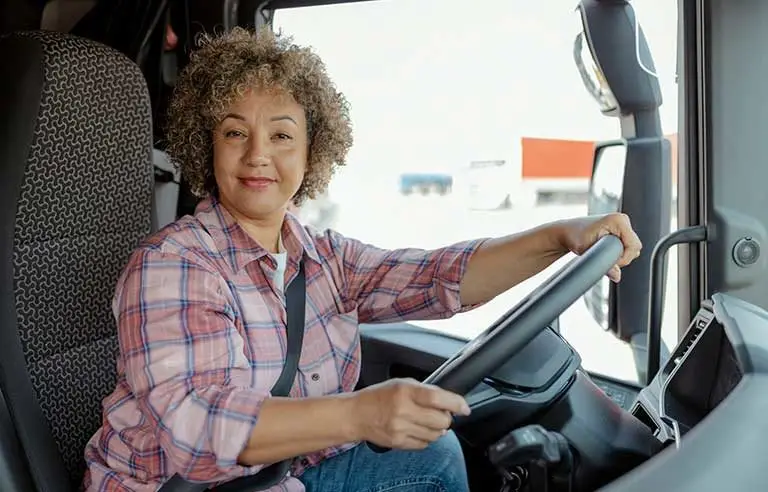
Photo: PixelsEffect/gettyimages
Washington — More than 1 out of 6 female truck drivers experience harassment or discrimination daily, while almost a quarter have left the industry over personal safety concerns, a new report finds.
The American Transportation Research Institute – the research arm of the American Trucking Associations – surveyed and interviewed truck drivers, motor carriers and truck driver training schools. The institute also conducted a focus group for female truckers to explore the challenges they face.
Around 17% of the female respondents reported encountering harassment or discrimination every day, compared with 8.4% of their male counterparts. More than 1 out of 10 of the women said they experience this behavior weekly (12.4%) or monthly (10.4%) – at least twice the ratio of the male respondents.
Discrimination during training is an especially pressing issue. ATRI advises female drivers to “research motor carriers, their business models and their corporate culture to identify training and operational expectations, company policies and values, and benefits offered.” A driver, for example, might participate in a ride-along or review a motor carrier’s website and marketing materials.
The report also discusses merits and obstacles related to providing same-sex training policies. Although offering such services “can mitigate the possibility” of “harassment, discrimination and, in some cases, assault,” the shortage of female trainers presents a roadblock.
Motor carriers might have to delay training until a female trainer is available. This and other controversies related to same-sex training programs have contributed to various lawsuits, the report notes, adding that “critics of same-sex training policies believe the focus should be on better vetting of trainers, expanded anti-harassment policies and paying for trainees to sleep in a hotel.”
ATRI also found that 24.7% of women have left the trucking industry because of concerns over personal safety, compared with 11% of men.
The report offers strategies for female truck drivers to prevent harassment, while encouraging motor carriers to provide self-defense programs during training or refer female drivers to community resources that offer defense training.
The survey revealed that 31.3% of the female respondents identified “attitude toward women/disrespect” as the leading reason they believe it’s more challenging for women to be truckers. Personal safety (12.6%), restroom access (12.2%) and physical abilities (11.6%) followed.
Around 2 out of 5 of the female respondents reported struggles finding safe parking and clean restrooms. To improve parking capacity and safety, ATRI advises motor carriers to:
- Educate drivers on personal safety strategies when parking.
- Use technology to assist drivers in locating parking.
- Establish schedules/routes that allow drivers to park early.
- Advocate for dedicated infrastructure funding to increase truck parking capacity.
The report calls on motor carriers to advocate on behalf of drivers to ensure they have access to restrooms at customer facilities. Drivers can use crowd-sourced technology such as apps, social media and online reviews, as well as personal connections, to locate clean restrooms.
McCraren Compliance offers a full range of safety and health training and consulting services. Plus we can help you incorporate well-being into your traditional systems in order to support the Total Worker Health of your workforce.
Call 888-758-4757, email info@mccrarencompliance.com or visit our website www.mccrarencompliance.com
Original article published by Safety+Health an NSC publication


